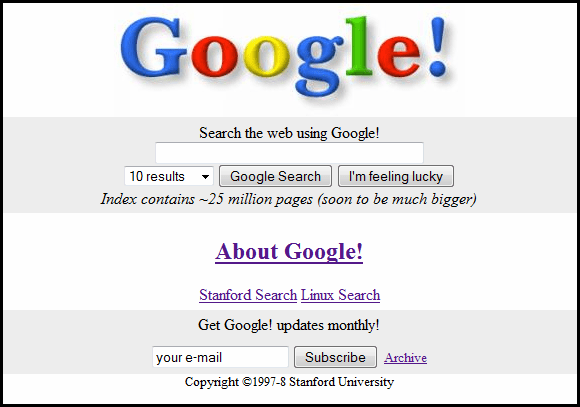Google has long been known as a friend of open source programming, and in its developer pages, it claims to have released over 20 million lines of code along with 900 separate projects.
Does Google stick to this open-source ideal when it comes to its strongest rivals?
Major competitors and internet giants like Facebook, Yahoo, and Twitter all use a data platform called Hadoop, based largely on work done by Google’s development teams.

Funny Names, Serious Results
The conflict between Google and its competitors arises because Hadoop is basically a platform designed and patented as MapReduce by Google nearly a decade ago. After portions of its software design were published it was reproduced by software developers with the backing of Facebook and Yahoo and is now used to run specific tasks related to data collection and storage, search, machine translation, and machine learning.
Legal tensions had already been raised last year when Yahoo threatened legal action against its co-creator in the Hadoop project, Facebook.
Thankfully, in March Google declared a sort of truce over MapReduce and Hadoop, stating that it would not seek enforcement of a set of 10 MapReduce patents. Only if attacked first will Google then look to claim its patent rights, signaling a reduction in worry over current and future patent control issues related to internet data. While this one open-source agreement is important, it may signal the beginning of more of these types of agreements, either between companies or as statements from larger controlling web presences like Google.
Peer-to-Peer Pressure
For you as the consumer and internet service providers, this new commitment plan to the open-source ideals from the early days of the internet can only mean good news. Companies that do not take part in the open-source design process potentially lose great developers and real-world testing that helps to improve and perfect existing programs and platforms. In addition, with the internet now dominated in many areas by a few key players, their willingness to forego the defense of their patents in exchange for improved cooperation by all players could mean the ability to deliver better code for internet service providers and a better experience for you.
Google named its agreement the Open Patent Non-Assertion Pledge(OPN), and it plans to take this small beginning and expand its pledge to other open source technologies. By creating this, Google hopes to set an industry standard and encourage other companies to follow suit. Among the advantages that Google claims its pledge model can boast are transparency, wide application, defensive protections, and the lifelong duration of the pledge, regardless of future patent ownership.
Predating Google’s OPN pledge, the Twitter Innovator’s Patent Agreement in 2012 established that it would not use its engineer’s patents as offensive tools to sue other companies. Instead, it allows the engineers and developers responsible for patented products to keep control of those patents and use them as they wish. Twitter retained the right to use those same patents as a defense against litigation but stated that they would use them offensively in cases when the design team allowed.
You count on the internet to be reliable, mostly free, and ever-improving to help you in your work, home, and social life. Internet service providers expect the same and rely on that to be able to deliver so much of the content that you enjoy. These recent protections of the open-source base of the internet should make everyone more confident in the internet’s continued growth and innovation.

